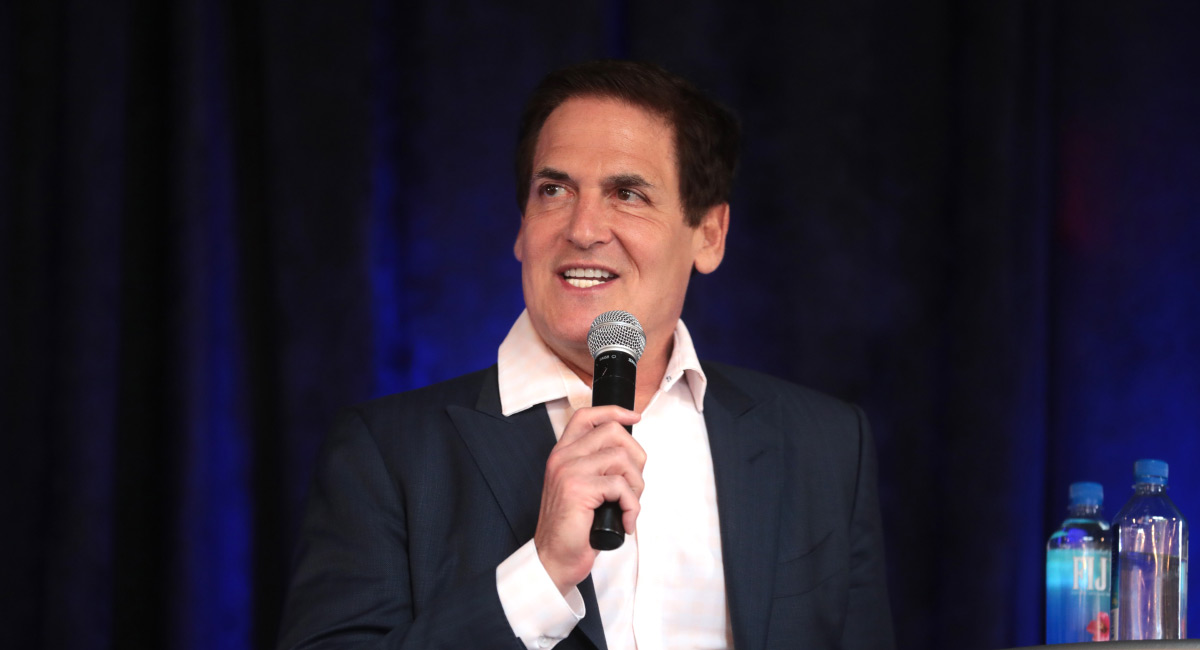A publicist emailed me recently, promoting a new book by Scott MacDonald, Education Without Debt (which I might review in the future after reading the book). In the email, the serial entrepreneur Mark Cuban (who, among other things, owns the Dallas Mavericks) was quoted as saying, “We can talk about Republican and Democratic approaches to the economy, but until you fix the student debt bubble and the tuition bubble, we don’t have a chance. All this other stuff is shuffling deck-chairs on the Titanic.”
Then it struck me: Cuban is an engaging panelist on Shark Tank, the ABC reality show that I occasionally watch. Several successful entrepreneurs including Cuban interview wannabe entrepreneurs who have an idea for a good or service that they they think the public will buy, but to make it happen they need the panelists’ financial help, which they often get after some haggling over terms. Sometimes the panelists get an ownership share in return for some cash assistance.
That is precisely what Income Share Agreements (ISAs) are about. Students go to an investor and say “I want to develop my human capital and my ability to provide valuable goods and services to the economy, but I need financial help.” And then the investor agrees to provide some assistance, say $80,000 over four years, in return for some “equity” in the student, say 14 percent of the student’s post-graduate earnings for eight years.
This has lots of advantages over student loans. From the student perspective, the financial risk of going to college is substantially (depending on the level of financial involvement) passed from a financially inexperienced teenager to an experienced investor. The government is removed from the process. The terms of the ISA will vary with prospects for financial success. Engineers and accountants attending top flight schools will get dramatically better terms than fine arts or sociology majors attending the College of Last Resort. Students who drop out of school or fare poorly getting a job are not burdened with a massive debt burden.
The labor market largely determines outcomes, favoring engineers and computer gurus over poets and philosophers. Some think that is “unfair” or denigrates the humanities and graduates in other low-paying fields. But arguably it says, “the world does not need a lot of professional (full-time) philosophers, artists, and writers.” Excellent practitioners in those fields still can succeed from either their salaries or sale of their published or performed works. ISAs help redirect scarce resources to areas where they are most likely to serve society well. Moreover, they incentivize students to obtain valuable skills people want, rather than those things the students wish to do based on their perhaps idiosyncratic tastes and preferences.
I always thought it would be cool if there were “little shark tanks,” where successful local entrepreneurs invested in small local business persons, but the concept could be extended to students—a collegiate shark tank, if you will. Students would vie for funds from savvy entrepreneurs, selling themselves—arguing they would be going to schools with prestige that have highly successful alumni, or that they thrived as students in high school and their unusual extracurricular activities show potential for success as an adult. Maybe ABC could devote an episode or two of the original Shark Tank to trying out the concept. Are Kevin O’Leary, Barbara Corcoran, Daymond John, Cuban and other panelists as good at predicting future success of young people as they are at evaluating somewhat more established adults?
Peter Thiel invests in young college-age kids, inducing them to drop out of college and engage in some entrepreneurial passion. Perhaps a panelist might tell a collegiate Shark Tank applicant that she or he would be better off completely foregoing traditional college, going to a coding academy and then joining a small tech-oriented startup, maybe one supported by a panelist. The tradeoff between formal education and becoming an entrepreneur, between getting a bachelor’s degree or continuing for some advanced degree like an M.B.A., etc., all could be discussed, evaluated and resources allocated by groups similar to the real Shark Tank. As Cuban says, our student loan programs are a disaster, and an alternative approach needs to be considered.













